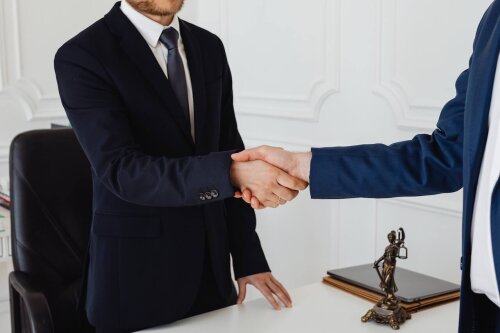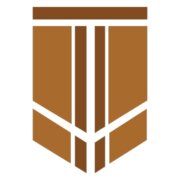Best Native People Lawyers in Sao Paulo
Share your needs with us, get contacted by law firms.
Free. Takes 2 min.
List of the best lawyers in Sao Paulo, Brazil
About Native People Law in Sao Paulo, Brazil
Native People, known as "Povos Indígenas" in Brazil, represent a significant and resilient cultural group within the country, including in the state of Sao Paulo. While many Indigenous communities reside in the Amazon, thousands of Native People also live in, or have historical and cultural ties to, the state of Sao Paulo. These communities possess distinct languages, traditions, and a special legal status recognized by the Brazilian Constitution. The legal framework concerning Native Peoples addresses their rights to land, culture, self-determination, education, healthcare, and protection from discrimination. In Sao Paulo, although urbanization and land development pressures are strong, Indigenous communities maintain a visible presence, often requiring legal support to defend their land and cultural rights.
Why You May Need a Lawyer
Many situations may require the expertise of a lawyer familiar with Indigenous law in Sao Paulo. Some common examples include:
- Land disputes involving the demarcation or rights to ancestral territories
- Conflicts over building projects, environmental regulations, or land use that affect Indigenous lands
- Defense against discrimination or violations of civil rights
- Ensuring access to culturally appropriate health care and education services
- Issues related to the recognition and documentation of Indigenous identity
- Matters involving collective rights and consultations before government or private actions that affect Indigenous peoples
- Guiding communities through public policy or lawsuits related to constitutional rights
A lawyer with expertise in Native People law can help interpret complex legal frameworks, represent you in negotiations or disputes, and ensure your rights are protected.
Local Laws Overview
The Brazilian legal system recognizes Native People as having special rights, protected mainly through the Federal Constitution, specific legislation like Statute of the Indigenous, and related decrees. Key aspects of the law relevant to Native People in Sao Paulo include:
- Right to Land: The Constitution guarantees Native People the rights to their traditionally occupied lands. These lands should be demarcated, protected, and cannot be sold or transferred.
- Cultural Rights: Laws protect Indigenous traditions, languages, and social structures.
- Consultation and Consent: International agreements adopted by Brazil, such as ILO Convention 169, require free, prior, and informed consultation with Native People regarding actions that affect their lives and territories.
- Healthcare and Education: The system provides for differentiated healthcare and bilingual or intercultural education to respect Indigenous identity.
- Protection Against Discrimination: Criminal and civil laws forbid discrimination based on ethnic or cultural identity.
- Local Context: In Sao Paulo, Indigenous communities often encounter specific challenges such as urbanization, pressure from agriculture or industry, and issues with land titling or public services.
Frequently Asked Questions
Who is considered an Indigenous person in Brazil?
An Indigenous person is someone who identifies as a Native and maintains cultural, social, or historical ties to a recognized Indigenous community. The recognition is self-declared and supported by community acknowledgment.
What rights do Native People have regarding land?
Native People have collective rights to the lands they have traditionally occupied. These lands are meant to be demarcated, protected from occupation by non-Indigenous people, and preserved for Indigenous usage.
Which government agency is responsible for Indigenous affairs?
The principal agency is the National Foundation for Indigenous Peoples (FUNAI), which assists with land demarcation, advocacy, and the defense of Indigenous rights.
Can non-Indigenous people buy or sell Indigenous lands?
No. Indigenous lands are collective property of the Indigenous communities and cannot be sold, transferred, or leased to non-Indigenous people.
What happens if there is a dispute between Indigenous people and the government or a private company?
Disputes are typically handled through legal channels, including administrative procedures and court actions. Indigenous communities have the right to legal representation and to be heard before actions that impact them.
Do Indigenous people in Sao Paulo have the same rights as those in other states?
Yes. The rights of Indigenous people are protected at the national level, but the practical enforcement and specifics may differ depending on local context and challenges in Sao Paulo.
What are the main challenges Indigenous people face in Sao Paulo?
Major challenges include land demarcation delays, urban development pressures, ensuring access to public services, and defending against social and economic exclusion.
Can Indigenous communities in Sao Paulo establish their own schools or cultural centers?
Yes. The law supports intercultural and bilingual education, and communities can request the establishment of schools and cultural programs that respect their traditions.
What legal protections exist against discrimination of Native People?
Discrimination on the basis of ethnicity or culture is prohibited by the Brazilian Constitution and criminal law. Violations can result in administrative or criminal penalties.
How can someone document their Indigenous status?
Recognition of Indigenous status involves self-identification and community acknowledgment, which can be documented via certificates obtained from recognized authorities or through FUNAI.
Additional Resources
For someone seeking legal advice or support regarding Native People in Sao Paulo, the following resources may be helpful:
- FUNAI (Fundação Nacional dos Povos Indígenas): Provides guidance and support for Indigenous rights at the federal level
- Indigenous Advocacy Organizations: State and national organizations such as APIB (Articulação dos Povos Indígenas do Brasil) and Instituto Socioambiental (ISA) offer legal support and representation
- Federal Public Defender’s Office (Defensoria Pública da União): Offers free legal assistance in matters involving federal law, including Indigenous rights
- Public Ministry (Ministério Público Estadual and Federal): Has special units to defend collective and Indigenous rights
- Academic and Legal Aid Centers: Law school clinics may also provide orientation and support
Next Steps
If you or your community require legal assistance related to Native People in Sao Paulo, consider these steps:
- Gather all relevant documents, such as identification papers, land use records, and correspondence related to your issue
- Contact a lawyer experienced in Indigenous rights or approach a legal aid organization or the Defensoria Pública
- If your concern involves a collective issue, consult with your community leadership to act together
- Keep records of all communications and developments related to your case
- Seek support and information from Indigenous organizations, which may help mediate or escalate concerns
You have the right to representation, information, and respectful treatment before public authorities. Starting with legal advice ensures your rights are recognized and protected at every stage.
Lawzana helps you find the best lawyers and law firms in Sao Paulo through a curated and pre-screened list of qualified legal professionals. Our platform offers rankings and detailed profiles of attorneys and law firms, allowing you to compare based on practice areas, including Native People, experience, and client feedback.
Each profile includes a description of the firm's areas of practice, client reviews, team members and partners, year of establishment, spoken languages, office locations, contact information, social media presence, and any published articles or resources. Most firms on our platform speak English and are experienced in both local and international legal matters.
Get a quote from top-rated law firms in Sao Paulo, Brazil — quickly, securely, and without unnecessary hassle.
Disclaimer:
The information provided on this page is for general informational purposes only and does not constitute legal advice. While we strive to ensure the accuracy and relevance of the content, legal information may change over time, and interpretations of the law can vary. You should always consult with a qualified legal professional for advice specific to your situation.
We disclaim all liability for actions taken or not taken based on the content of this page. If you believe any information is incorrect or outdated, please contact us, and we will review and update it where appropriate.














